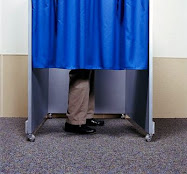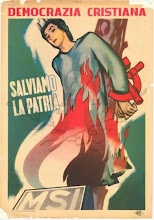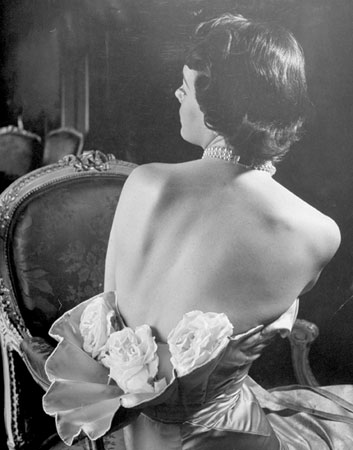By Michael D. Shear and Philip Rucker
Washington Post Staff Writers
Monday, November 17, 2008; A01
If Sen. Hillary Rodham Clinton is named the next secretary of state, she and her husband could be positioned to lead a public-private partnership on the global stage unlike any before it, one that experts say would bring with it a host of potential benefits and pitfalls for the new president.
Since leaving the White House, Bill Clinton has used his connections with world leaders to position himself as something akin to the world's philanthropist in chief -- and become rich in the process by collecting huge sums from foreign companies eager to hear him speak.
That arrangement could be complicated, though, by his wife joining the Obama administration, with the prospect of questions about any conflict of interest or attempts to curry influence.
For the past four years, Bill Clinton has convened the annual Clinton Global Initiative, a glamorous philanthropic conference that brings together hundreds of corporate chiefs, heads of state, humanitarians and celebrities. The William J. Clinton Foundation has ballooned into a global nongovernmental organization with a staff of more than 800, addressing chronic problems such as climate change, hunger, AIDS and malaria.
If President-elect Barack Obama selects Hillary Clinton as his secretary of state, she will oversee many of the U.S. government's foreign aid programs, potentially turning the couple into an overwhelming force in global aid, say some leaders in the philanthropic community.
"It boosts her stature, it boosts the work of the Clinton Global Initiative, it boosts the whole concept of American partnerships making a real difference on the global level," said Steve Gunderson, president of the Council on Foundations and a former Republican congressman.
"She will be able to say in many of her meetings, 'We're in a situation where I can't commit congressional foreign assistance, but let me work with the philanthropic community back in the United States to see if there are ways that they can be helpful,' " Gunderson said.
The choice of Clinton would present other potential problems for Obama. He would be investing his fortunes not only with his former rival for the presidency but also in an outsize figure on the global scene who has been conducting a kind of privately financed foreign policy all his own since leaving office. Obama and the former president have also continued to share a somewhat strained relationship since the end of the Democratic nominating contest.
Bill Clinton's web of personal financial ties and public policy pronouncements about the world's challenges would instantly become a source of possible discord with a new Obama administration as his wife travels the same world circuit as America's official emissary.
"He's a former president of the United States. He's been traveling around the world, and he's got his foundation and a lot of foreign policy efforts going on," said Leon Panetta, Clinton's former chief of staff and now a professor of public policy. "What they will have to obviously be careful of are the potential conflicts that might appear."
Supporters of the former first lady reject the idea that her selection as secretary of state would be viewed through a prism of either the benefits or the baggage provided by her husband.
"She was one of the most successful primary candidates," said Rep. Debbie Wasserman Schultz (D-Fla.). "I really think that it's unfair to suggest that there's any type of a package that comes with her appointment."
But Hillary Clinton's presence in Obama's Cabinet would mark a shift in the kind of relationship that presidents have traditionally shared with predecessors who maintained a high profile.
Occupants of the Oval Office tend to keep former presidents at arm's length, sometimes turning to them occasionally to play roles such as special emissary during international disasters or humanitarian crises. President Bush asked both his father and Clinton to raise relief money after the Indian Ocean tsunami and Hurricane Katrina. Bill Clinton, as president, enlisted predecessors to advocate for the North American Free Trade Agreement.
Former president Jimmy Carter was a thorn in the side of George W. Bush, traveling to Syria, Cuba and the Middle East to meet with leaders despite complaints from the White House.
"You want to be able to determine when you are going to make use of a former president in terms of foreign policy or trying to help on particular issues. That can be a very powerful tool if it's used well," Panetta said. "It has to be used with discretion. The last thing you want is to have a former president be a rogue."
Some foreign policy experts said seeking to exploit Bill Clinton's reach and experience could prove a mistake.
"They might be tempted to use him in the Middle East. That wouldn't be a wise thing to do," said Charles Hill, a Yale professor who served several secretaries of state. "It's too American. It's too visible. That's a danger that the Obama team has to face and deal with."
Hill said there is also the danger that the former president's constant presence could lead some world leaders to question the authority of the new president.
"He's got to maintain his stature. He should not want Bill Clinton getting all the ink. Or Hillary Clinton," Hill said. Selecting Hillary Clinton to serve, he said, would violate one of the cardinal rules of foreign policy: "Secretaries of state don't deal with ex-presidents. And if they do, the White House raps their knuckles."
For his part, Bill Clinton said last night that his wife would be "a great secretary of state." Speaking in Kuwait City before an international audience of economists and politicians gathered by the National Bank of Kuwait, Clinton said that if Obama "decided to ask her and they did it together, I think she'll be really great as a secretary of state," Agence France-Presse reported. He said he did not know whether she had discussed the post with Obama's camp.
Hillary Clinton would not discuss the matter Friday, saying in Albany, N.Y.: "I'm not going to speculate or address anything about the president-elect's incoming administration. I'm going to respect his process."
By taking the Cabinet post, Hillary Clinton would also force new scrutiny of her husband's charitable activities and his private financial dealings. Bill Clinton has raised millions of dollars for his foundation but has declined to publicly disclose its benefactors. Likewise, most of the donors who helped bankroll his presidential library in Little Rock have never been disclosed.
"It certainly is likely to sharpen the scrutiny that the press and critics will give to the types of things he does in raising the money," said Joel L. Fleishman, a philanthropy expert and professor of law and public policy at Duke University. Fleishman added that "her being secretary of state would tend to raise the scrutiny."
Since founding his global conference, Clinton says, he has facilitated charitable commitments valued at $46 billion that already have improved more than 200 million lives in 150 countries. And his personal wealth has ballooned as well: The Clintons earned a combined $109 million during the Bush administration.
The 63-page vetting document that Obama is using asks applicants whether there are "any categories of personal financial records . . . that you (or your spouse) will not release publicly if necessary. If so, please identify these records and state the reasons for withholding them."
Interestingly, in the margins of a copy of the application leaked from the transition team, the word "Clinton" is written next to that paragraph.
After earning $200,000 a year in the White House, the former president has raked in more than $40 million on the speaking circuit, often from foreign companies in countries where a Secretary of State Hillary Clinton would confront thorny issues in the next several years.
Even without a wife in Obama's Cabinet, Clinton has already raised eyebrows with his speeches. In February 2005, Clinton spoke about AIDS to a Swiss biotech firm whose American subsidiary eventually agreed to pay $704 million after pleading guilty to conspiracy. In 2001, he was paid $125,000 to speak to International Profit Associates, an Illinois company that was the focus of a federal investigation and a government lawsuit alleging widespread sexual harassment.
Clinton has also turned his friendships with wealthy businessmen into a source of personal income. Partnerships with billionaire California investor Ronald Burkle earned Clinton more than $5 million. The former president made more than $3 million as a consultant to InfoUSA, a consumer data business founded by his friend Vinod Gupta.
Clinton has also been linked to controversial foreign deals. A New York Times report suggested that the former president had played a key role in helping a Canadian mining executive, Frank Giustra, win a uranium-mining contract in Kazakhstan.
The paper reported that Giustra donated $31.3 million to Clinton's foundation shortly after the Kazakhstan mining deal was finalized.
Staff researcher Madonna Lebling contributed to this report.






























